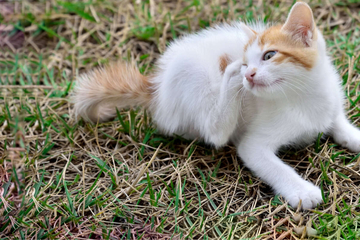Cat flu symptoms and treatment: Is it life-threatening?
Does your cat have the sniffles? It could very much be a cat flu, something that is potentially life-threatening for your kitty. What are the symptoms, and what are the treatments?
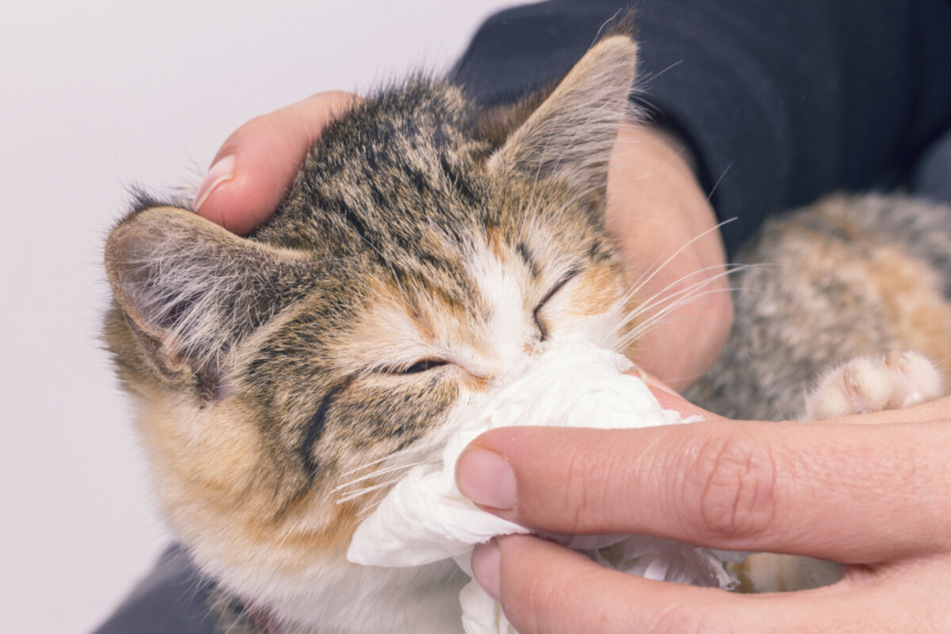
If your cat has developed symptoms of a cold, it's a bad idea to ignore them.
There are many different kinds of cat flu, much like their human equivalents, and some are worse than others.
Considering some of their symptoms and the risks that could rear their ugly heads, it's best to seek treatment and get on top of it.
In this cat guide, TAG24 is here to take you through everything you need to know about cat flu, including the symptoms you should look out for and the treatments you should seek out.
What is cat flu?
There is no one singular cat flu, as the term is a collective name for a variety of different diseases. Most variants of cat flu are made up of highly contagious and complex viruses and bacteria that act together to induce a sickness in your kitty.
Some of the pathogens that cause cat colds and flu include:
- Feline calicivirus (FCV)
- Feline herpes virus (FeHV-1)
- Chlamydia felis (Chlamydia) bacterium
- Bacterium Mycoplasma felis
- Bacterium Bordetella bronchiseptica (Bb)
Remember that you must never leave cat flu untreated. Usually, kitties will be fine, but in bad cases, it can lead to your cat's death.
Which breeds can catch a cat respiratory infection?
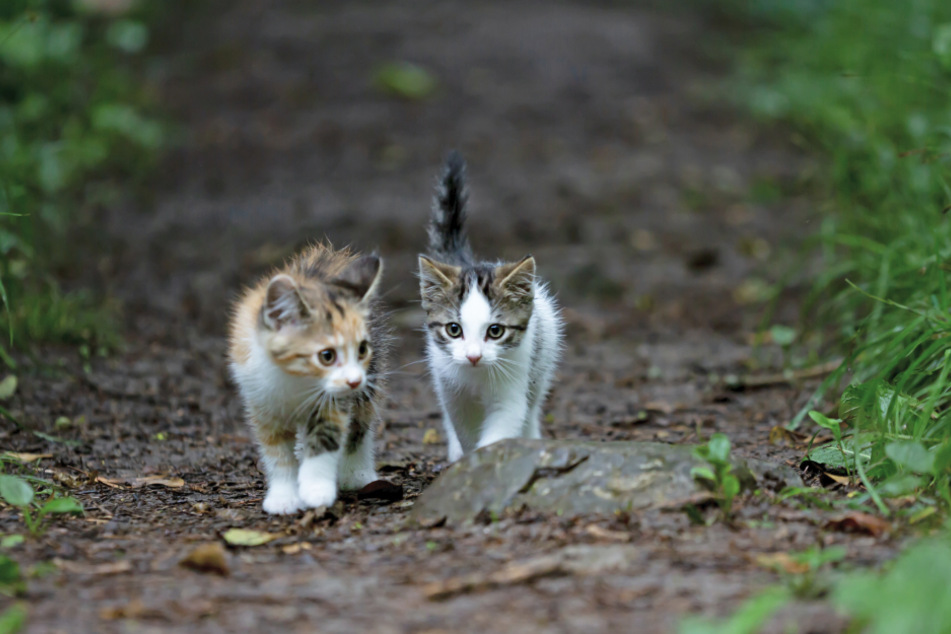
While all kitties can catch cat flu, younger cats and older cats are more susceptible due to their weaker immune systems.
It is often transmitted from cat to cat, and is a particular issue in places like cat shelters, boarding facilities, and breeding stations due to the animals' close proximity to one another.
Even stray cats and outdoor cats can become infected if they meet another sick cat, or interact with something tainted with the virus and bacteria.
It is also possible to give your indoor cat the cat flu if you drag in dirt on the soles of your shoes.
Is cat flu contagious to humans?
While humans can't catch the cat flu directly, some of the virus and bacteria can jump to humans and make us sick as well. That being said, it is far less deadly for us and will usually result in nothing more than a few sniffles.
Cat flu symptoms
There are many different symptoms of cat flu, some of which are far worse than others. Though different flu viruses infect cats than generally attack humans, some of the symptoms are actually quite similar.
Here are the symptoms of cat flu:
- Eye and nose discharge dripping
- Excessive sneezing
- Rattling and crackling breath
- Coughing
- Shortness of breath
- Loss of appetite
- Weight loss with prolonged illness
- Vomiting
- Significant apathy
- Flabbier body
- Conjunctivitis
- Increased salivation
- Injuries and inflammations of the nose
- Ulcers in or on the mouth
- Pneumonia
- Fever (body temperature above 100°F)
Please keep in mind that this list is not exhaustive and every cat is individual. As a result, symptoms will vary from cat to cat. Make sure you also differentiate between a cat flu and a cat cold. Just because your cat is sneezing doesn't mean it has a serious flu.
It is true that a cat flu has similar symptoms to a cat cold, so as always, just go to the veterinarian and get your kitty checked out. Don't leave things up to chance.
Keep in mind: If your cat is pregnant, you need to be especially careful about cat flu, as it can cause a miscarriage.
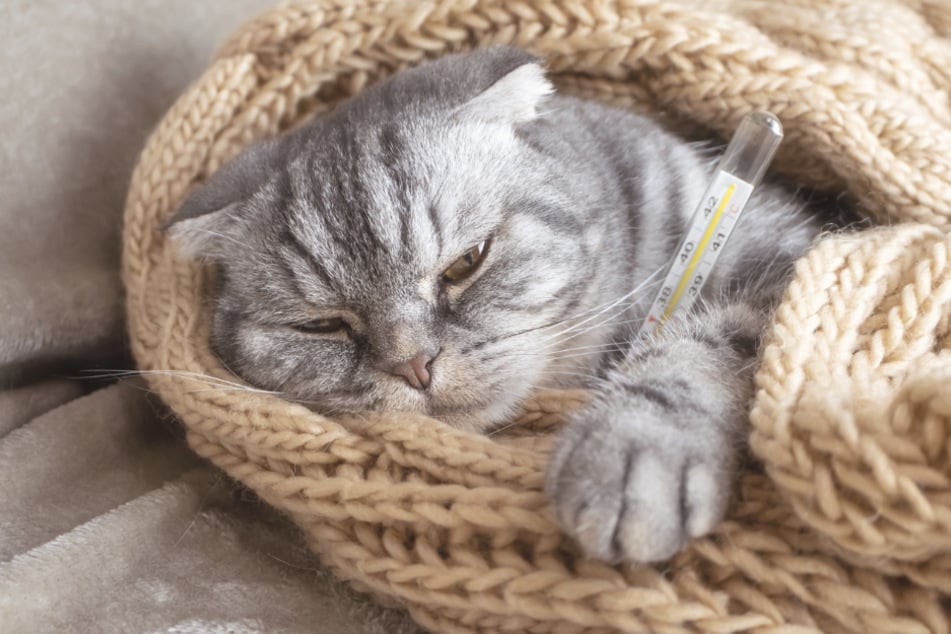
Cat flu treatment
It is vital to get timely cat flu treatment, as the disease can intensify and cause serious illness. The flu can transfer from cat to cat and infect humans as well, so you have to get on top of this bad-boy.
Some consequences of delayed cat flu treatment include:
- Blindness
- Loss of eyesight
- Lung damage
- Chronic diseases
- Death
Treating a chronic cat cold can be a very time-consuming and cost-intensive affair, with treatment needing to be carried out as quickly as possible. Your veterinarian will take a swab of your cat's nose, eyes, and tongue and will conduct tests. Alternatively, they could also take a blood test.
Once it has been determined that your cat does, indeed, have a cold, your vet will prescribe a variety of possible medications for your cat. Often these medications will be a form of antibiotic, but whatever it is, the most important thing is that you continue the course of medicine to its completion and trust your vet's judgement.
Remember that you are not a cat health expert. If your cat is sick you need to take it to the vet, listen to the professional's advice without making assumptions.
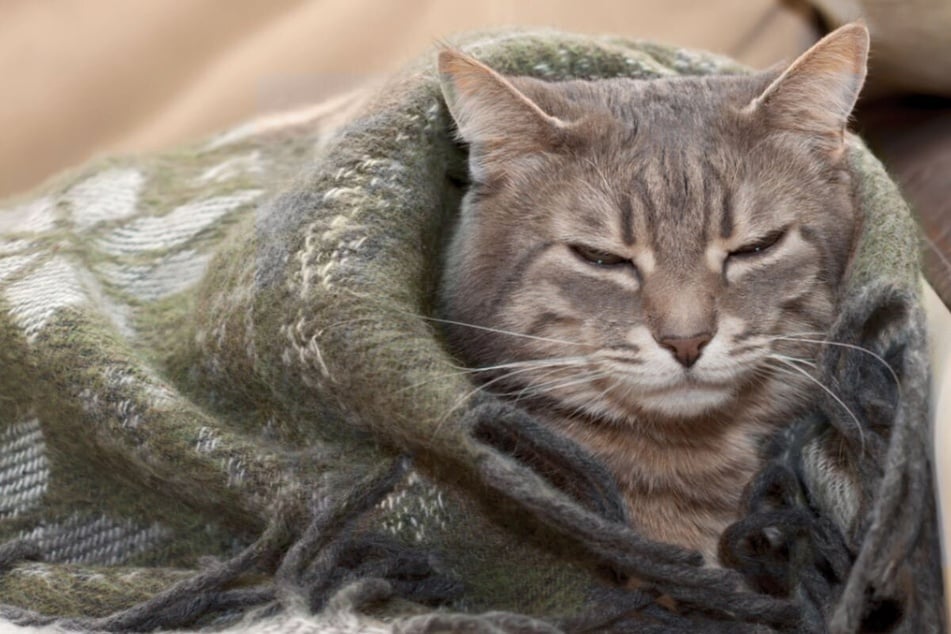
Best home remedies to cure cat flu
Cat owners will always want to do their best to help their kitty when it gets sick. It is possible to both overdo and under-do it. The most important thing is, of course, to take your cat to the vet, but there are also a variety of home remedies that will help your cat stay comfortable and get better faster when it has the flu.
Here are some things that you can do to help your cat with its flu:
- Remove nasal and eye discharge carefully but regularly with a lint-free cloth and lukewarm water (no soap)
- Provide plenty of quiet and warm sleeping places
- Maintain a quiet and stress-free environment and atmosphere
- Offer plenty of fresh drinking water, in several places
- Provide the cat's favorite soft food, and top it up regularly so it stays as well-fed as possible
- Clean the litter box and food/drinking bowls extremely regularly
- Reduce drafts from open doors and floorboards
There are also tons of things that you should never do. Cats need rest and a warm, safe environment to recover in. If you've got a case of cat flu, this is especially important.
You should never do this if your kitty has cat flu:
- Don't constantly pet your cat
- Never wake it up or drag it out of its hiding place
- Do not allow contact with other cats, as this could transfer the flu
- Never let your cat outside when it has the flu
- Don't administer cat medicine on humans
- Avoid using home remedies or medicines without medical advice
- Don't use essential oils, which will actually hurt or poison your cat
Cat owners must remember that they can also get infected and sick from cat flu bacteria and viruses. As a result, it's best to continuously wash your hands and try to be as hygienic as possible if your cat is sick.
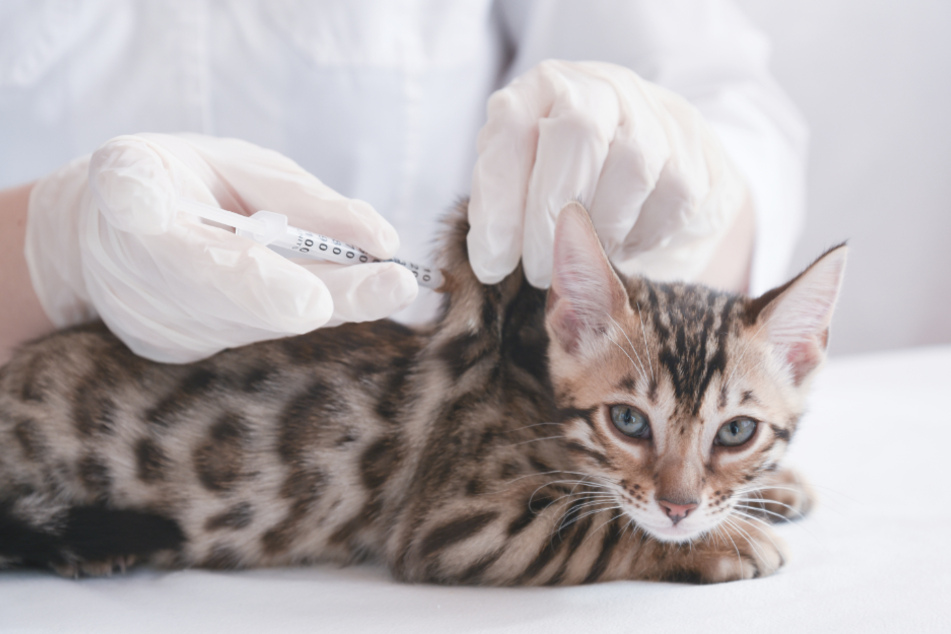
How to prevent cat flu
Avoiding the cat flu altogether is the best way to go if you don't want your cat to get sick. There are a few steps other than vaccination (which we will discuss in a moment) that you can take to reduce your cat's risk of the flu.
Steps to prevent cat flu include:
- Keep your apartment as clean as possible
- Keep all utensils, water/food bowls, and litter trays clean
- Take off your shoes before entering the house and leave them somewhere the cat won't go
Cats can potentially pick up the flu from outside pathogens brought in by you, so try to be careful about the muck you drag in.
Cat flu vaccines
The most important and effective way of preventing the cat flu is to have your cat vaccinated against it. Just like the regular human flu, this is not just a one-off jab. Indeed, the cat flu vaccine requires semiregular top-ups throughout your kitty's life.
This is because the cat flu is a variety of different bacteria and viruses which will change from season to season. No individual vaccine will be able to protect against all pathogens, for all eternity. Regular vaccination is especially important for outdoor cats, but should not be ignored by indoor cat owners.
Now, let's debunk a myth: No, the vaccine will not eliminate all chance of your cat getting the flu. Similar to the flu or Covid-19 vaccinations in humans, the idea is to reduce your pet's susceptibility and, most importantly, protect them against extreme or dangerous symptoms.
You should never avoid getting your cat vaccinated due to financial constraints. Making sure that your cat is vaccinated is especially important for adopted shelter cats.
How long does cat flu stay in the environment?
Luckily, cat flu is pretty darn weak when it is outside your cat's body. In other words, you can kill most cat flu variants with pretty standard household cleaning products. The problem is that most cat flues can survive for a long time in the environment – around 2 weeks.
For that reason, always clean thoroughly when your cat has a cold, making sure that any bacteria or viruses are eliminated from the environment. It shouldn't be too hard, and if done correctly, will help to prevent further infection.
Ultimately, the veterinarian should be your one-stop-shop if your cat catches the flu. This sickness can be hazardous and you don't want to take any risks, so make sure to play it as safely as possible!
Cover photo: 123RF / Javitrapero


